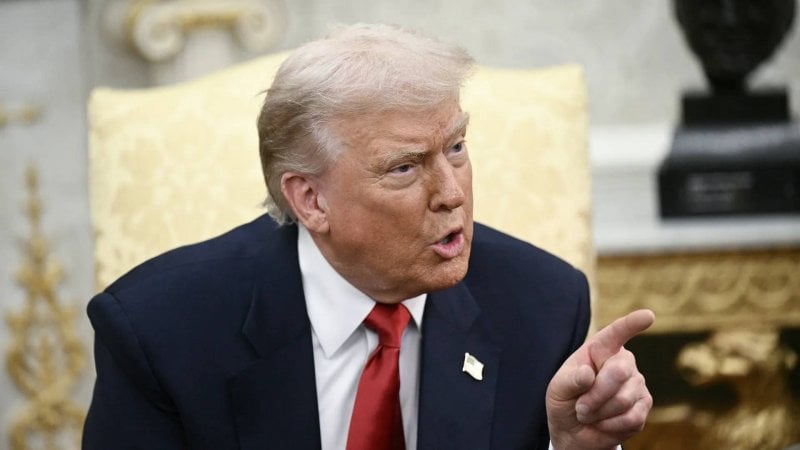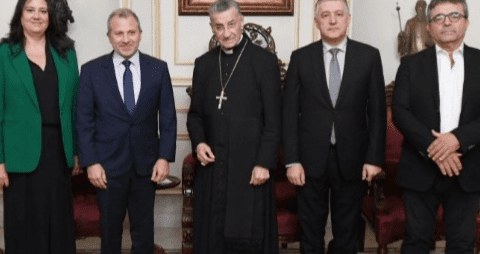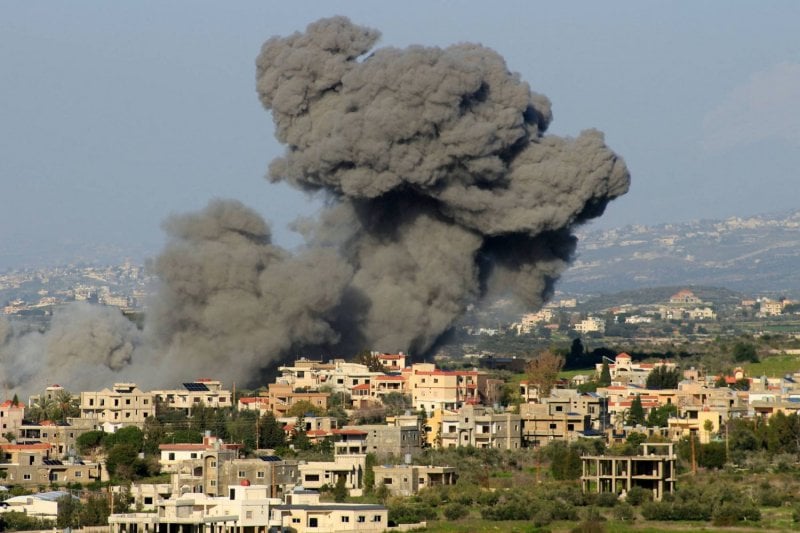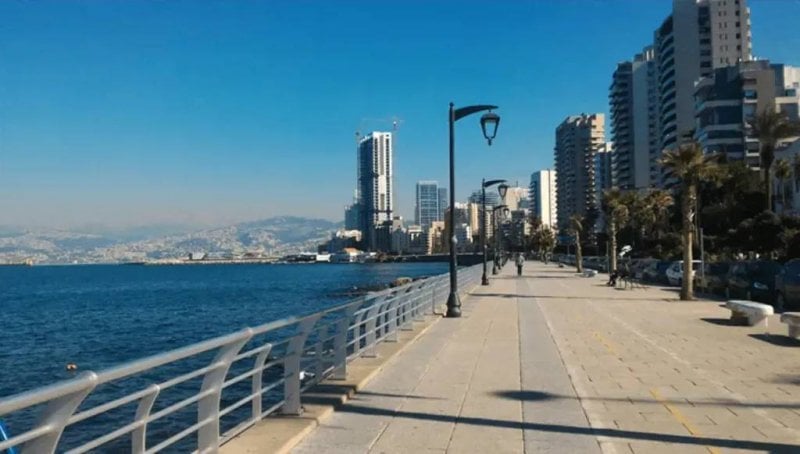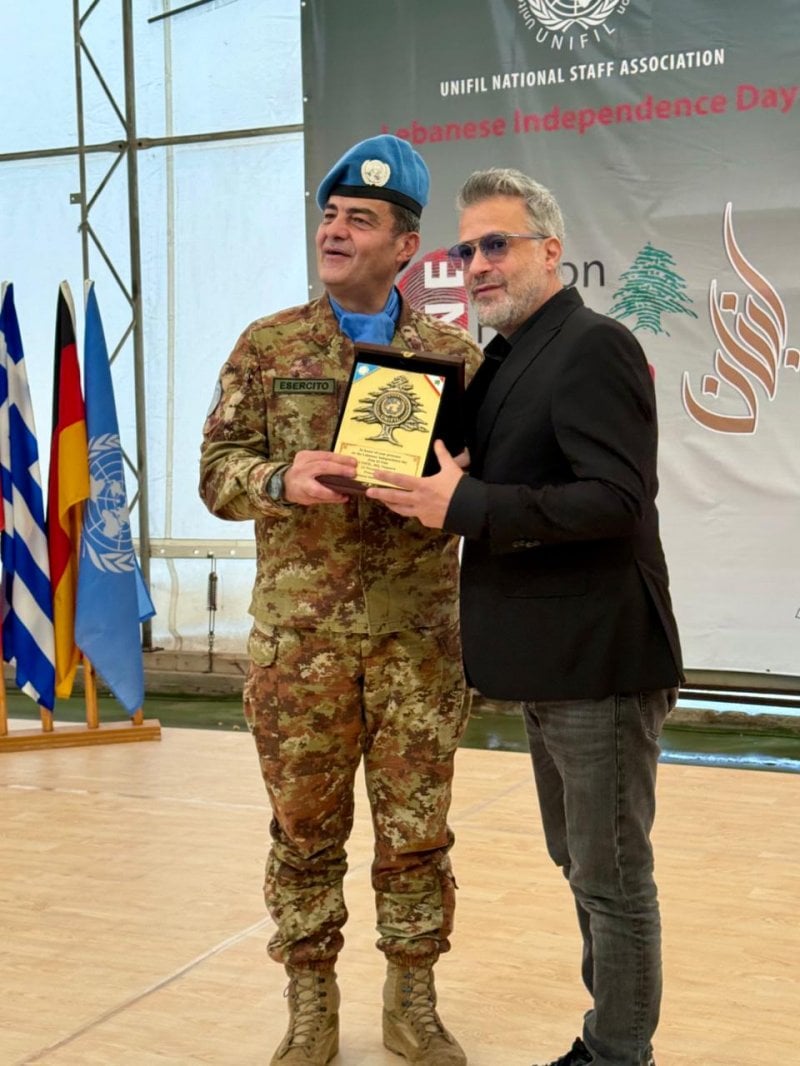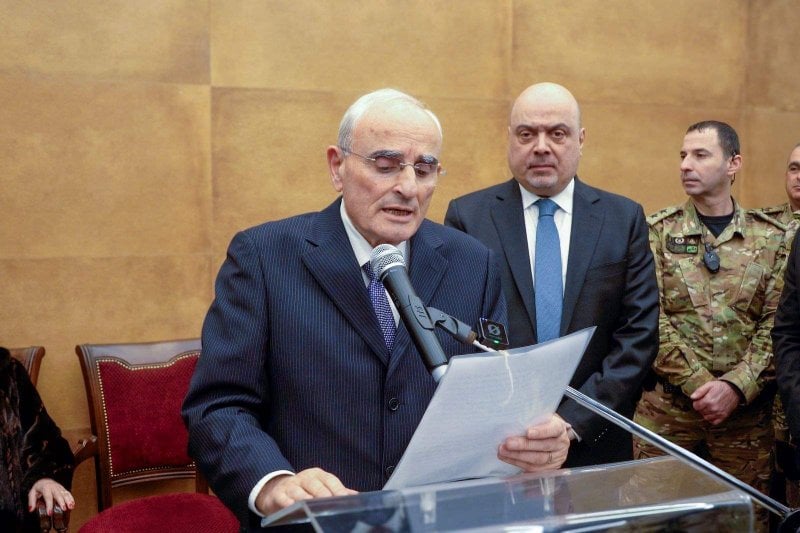
He also explained that “the process of combating corruption in Lebanon faces many obstacles, and it is often disrupted for political reasons,” revealing that “the decrees related to the appointment of the Republic’s mediator are stuck in the House of Representatives,” expressing his regret that this law “will remain suspended indefinitely, despite its importance in promoting transparency and protecting citizens’ rights.”
The Minister of Defense affirmed that “the mechanism committee that was established to implement and monitor the agreement to stop hostilities is moving towards acquiring a negotiating role that paves the way for the start of indirect negotiations aimed at establishing security and stability on the southern borders.”
He indicated that “indirect negotiation can begin through this mechanism, in light of the need to end the state of war that has affected the Lebanese economically, militarily, and financially.”
He pointed out that “the army continues to implement the plan to confine weapons to the state, which was approved by the Council of Ministers in September 2025,” explaining that “the first phase includes the area extending from south of the Litani to the border, and it is expected to be completed before the end of the year.”
He stressed that “it is unreasonable for there to be two rifles on the ground, but rather only the state’s rifle, and hence the Council of Ministers’ decision to confine weapons.”
He affirmed that “the confiscated weapons are sorted between what can be used and what is destroyed according to military standards, in complete secrecy.”
Regarding the statement of US envoy Tom Brack, who called on President Joseph Aoun to communicate with Israeli Prime Minister Benjamin Netanyahu, Mansi said: “It cannot happen, and we in the military establishment are people of steadfastness.”
Regarding Israeli attacks, he stressed that “the army is committed to defending Lebanese sovereignty and responding to any incursion,” saying: “We are facing with our available capabilities and from our living flesh, and we are asking for support to enhance our capabilities.”
He stressed that “the army is the only guarantor of the state’s sovereignty and the extension of its authority over the entire Lebanese territory.”
Regarding international support, Mansi announced that “Lebanon has received American aid worth 230 million dollars without conditions, in addition to European support worth 12.5 million euros allocated for non-combat equipment,” pointing to “contacts with Greece and Kuwait to provide the army with additional weapons and equipment in preparation for taking over its full tasks in the south after the withdrawal of UNIFIL.”
He affirmed “the necessity of unifying the internal position and supporting the military establishment,” saying: “The steadfastness of the Lebanese is the basis of national steadfastness, and the army is the pillar and protector of the state.”
He pointed out that “Lebanese-Syrian relations are witnessing a positive development at the security and political levels,” pointing to “the signing of a security cooperation agreement with his Syrian counterpart during a meeting held in Saudi Arabia, which aimed to calm the situation on the eastern borders and control smuggling operations.”
He explained that “the incidents that the border witnessed recently prompted the two sides to establish a joint operations room for immediate coordination between the Lebanese and Syrian military points in the event of any incident, which contributed to stabilizing the truce and reducing tension.”
He pointed out that “cooperation between the two countries has expanded to include other areas, including the upcoming judicial agreement to hand over wanted persons,” stressing that “the political will exists on both sides to reach border demarcation, despite the delay in technical readiness from the Syrian side.”
Regarding combating drug and Captagon smuggling, the Minister of Defense explained that “the main factories were in Syria before some activities moved to Lebanon,” stressing that “security coordination between the Lebanese and Syrian armies has led to a significant decrease in smuggling operations.”
As for the issue of weapons inside the Palestinian camps, he announced that “five camps have been disarmed of heavy and medium weapons, and work is underway to complete the operation in the remaining camps in implementation of the Council of Ministers’ decision to confine weapons to the Lebanese state.”
Regarding the incident of the killing of the young man Elio Abi Hanna in the Shatila camp, Mansi affirmed that “the investigations are still ongoing, and their results will be announced as soon as they are completed,” calling for “caution and not to anticipate the results of the investigation.”
He affirmed that “the current stage is characterized by a clear positivity in relations between Beirut and Damascus,” pointing out that “security cooperation paves the way for a new stage of openness and understanding between the two countries.”
He also affirmed that “the Lebanese army is continuing to implement its plan in the south Litani area in successive stages,” explaining that “the transition to the second stage will be linked to a report issued by the army command at the end of the first stage, so there are no pre-set deadlines because the nature of the land and field tasks impose their reality.”
He pointed out that “work in the south faces great field difficulties, especially in the mountainous areas and valleys, where the army is conducting meticulous inspections of tunnels and weapons depots,” stressing that “time is not a criterion as much as it is achieving the task and protecting lives.”
Regarding the issue of border demarcation with Syria and the Shebaa Farms, he stressed that “this issue will be discussed within the framework of specialized committees at the appropriate time,” praising “the Saudi role in sponsoring the regional dialogue aimed at strengthening security and stability on the Lebanese borders.”
Regarding the relationship with Hezbollah, he explained that there is “ongoing communication similar to communication with all Lebanese parties, and that the military plan aims in essence to restore Lebanese sovereignty over the entire territory,” pointing out that “national cooperation is necessary for the success of these endeavors.”
He concluded his speech on the issue of reactivating military service, revealing that “the Ministry of Defense is studying its reactivation in a new form that encourages young people to engage in the military establishment, while amending the methodology to suit current circumstances.”



